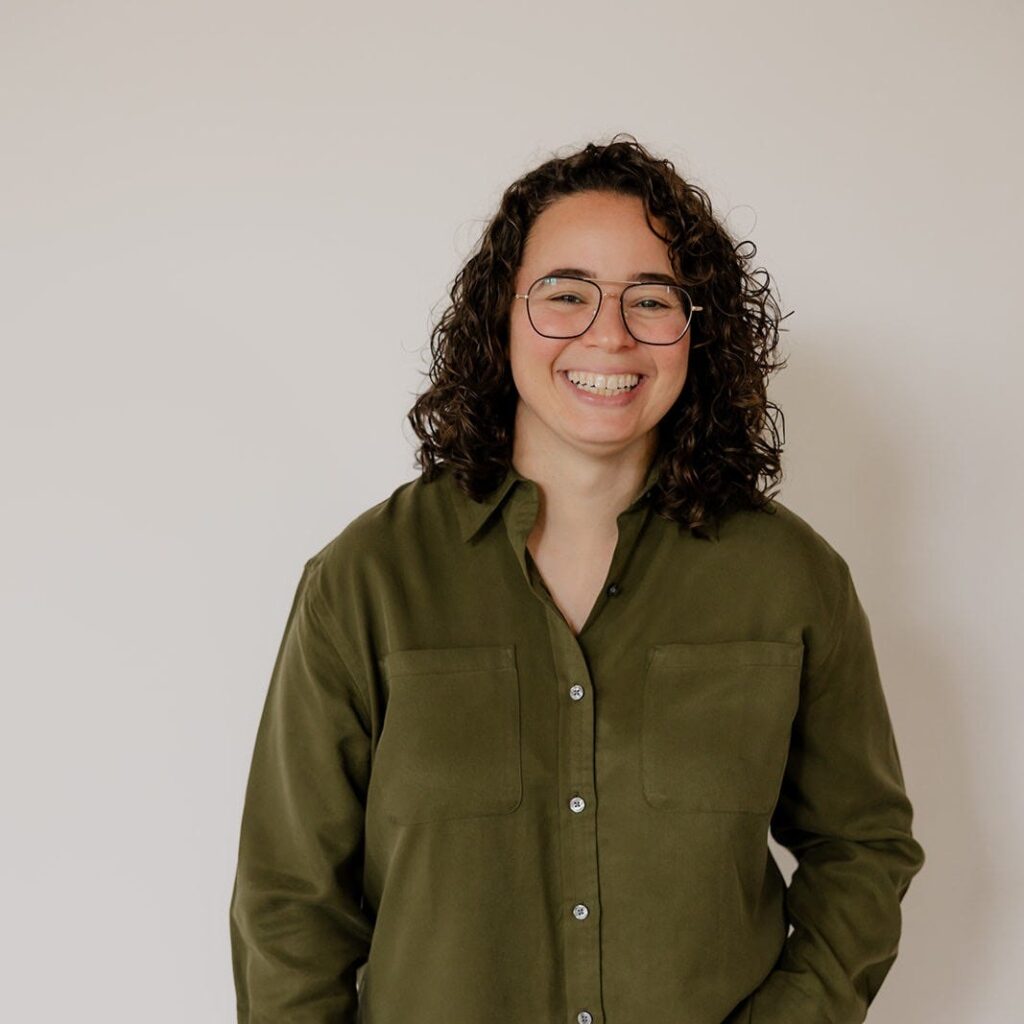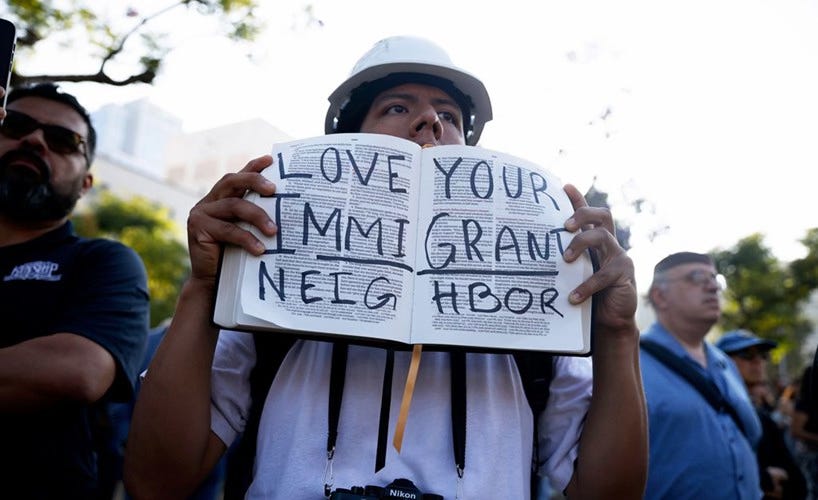As we witness horrors both far and near, we acknowledge that the source of this evil is the same. Whether it’s a celebration of Juneteenth, when the last slaves in Galveston, Texas finally realized their freedom or the celebration of our cultural legacies and inheritances in food, music and dance, our liberation is bound up together. Together, We Thrive is a Chasing Justice campaign to help tune our hearts to the rhythms of solidarity and mutuality, the God-given rhythms that lead to our collective liberation, to our collective flourishing.
Below, we are honored to share an excerpt from “The Urgent Call of Our Times” by Sarah Raquel Gautier. You can read the rest of this story on her Substack here.
As we witness the atrocities happening from the streets of L.A. to the subway stations in Boston to the starving children in Gaza, I am reminded of the interconnectedness of our stories. Whether we like it or not, whether we realize it or not, we are interdependent beings.
“Our liberation is bound together.” – Dr. Lilla Watson
So, how can we be people of liberation in these times?
Juneteenth – a day that marks liberation from slavery for our Black siblings. A liberation that was delayed. A liberation that did not come until 1865, two years after the Emancipation Proclamation. A liberation that should have come on July 4, 1776, with the Declaration of Independence and “liberty and justice for all” (Except we know that “all” was only for white men.)
Seventy six years after the first Independence Day Celebration and thirteen years before the first Juneteenth Celebration, Frederick Douglass offered his moving speech on July 4, 1852, “What to the slave is the Fourth of July.”
“For it is not light that is needed, but fire; it is not the gentle shower, but thunder. We need the storm, the whirlwind, and the earthquake. The feeling of the nation must be quickened; the conscience of the nation must be roused; the propriety of the nation must be startled; the hypocrisy of the nation must be exposed; and its crimes against God and man must be proclaimed and denounced.” – Frederick Douglass
Four days ago, on Pentecost Sunday, I reread these words. Douglass’ words were in many ways a call for a new Pentecost.
When the day of Pentecost came, they were all together in one place. Suddenly a sound like the blowing of a violent wind came from heaven and filled the whole house where they were sitting. They saw what seemed to be tongues of fire that separated and came to rest on each of them. All of them were filled with the Holy Spirit and began to speak in other tongues as the Spirit enabled them. – Luke in Acts 2:1-4
Pentecost is the birthing of the Church. Fifty days after Jesus resurrected, a new beginning was born. People are empowered with fire, wind, and words to continue the liberation movement of Jesus for the good of all of humanity.
We need a new Pentecost again. We need to reawaken the way of Jesus and the Early Church again. We need to become people of liberation again.
5 Essentials on Becoming a Liberation Movement
1. Shared Purpose
The Early Church became a Liberation Movement, because they had a shared purpose. Jesus came to liberate people to become a new humanity through resurrection, a new family through reconciliation, and a new mission through restoration. At Pentecost, they were filled with a sense of aliveness to continue the movement.
The Early Church reoriented their lives around Jesus’ 3-fold purpose:
- Come alive as a new humanity
- Live alive within a new family
- Call others alive with a new mission
They devoted themselves to the teachings of the way of Jesus, so they could live out his purpose as a faith community.
If we want be people of liberation, then we need to reawaken our devotion to the 3-fold shared purpose of Jesus. He came to liberate. We exist to liberate.
2. Shared Life
The Early Church became a Liberation Movement, because they had a shared life. Jesus began by calling apprentices into a close-knit community. He called them into the hard-work of being a multi-cultural, multi-ethnic, multi-generational family. At Pentecost, they spoke in diverse words that brought unity, not division.
The Early Church reoriented themselves around shared rhythms of life that kept them in continuous connection. They devoted themselves to a unique fellowship where their ethnicities, cultures, and generational differences were not oppressed, but celebrated.
If we want be people of liberation, then we need to reawaken our devotion to staying close enough to celebrate the blessings and carry the burdens of one another.
3. Shared Tables
The Early Church became a Liberation Movement, because they had shared tables. Jesus began many of his relationships with a meal, around tables, in conversations. At Pentecost, they continued this way of Jesus, by breaking bread in one another’s homes.
The Early Church reoriented their lives around these “Love Feasts”. These shared meals at shared tables were a representation of their love for one another. They were reminded that Jesus was the host of the table – his body broken for them, his blood shed for them – and they were the guests.
If we want be people of liberation, then we need to reawaken our devotion to regularly feasting together in close proximity. Food heals and food holds us together in love.
4. Shared Practices
The Early Church became a Liberation Movement, because they had shared practices. Perhaps the practice that Jesus engaged in most consistently was prayer. He and his apprentices prayed 3 times every day. He gave them a structure for prayer that was meant to unleash their power as his apprentices. Pentecost came, because they were praying together.
The Early Church reoriented their lives around the power of shared practices.Through the power of prayer they protested injustices, they healed the sick, and they spoke with authority.
If we want be people of liberation, then we need to reawaken our devotion to collective prayers of activation, of intercession and of lament. These prayers unleash our authority to speak life over death.
5. Shared Sacrifice
Read the rest of this piece on Sarah’s Substack.








